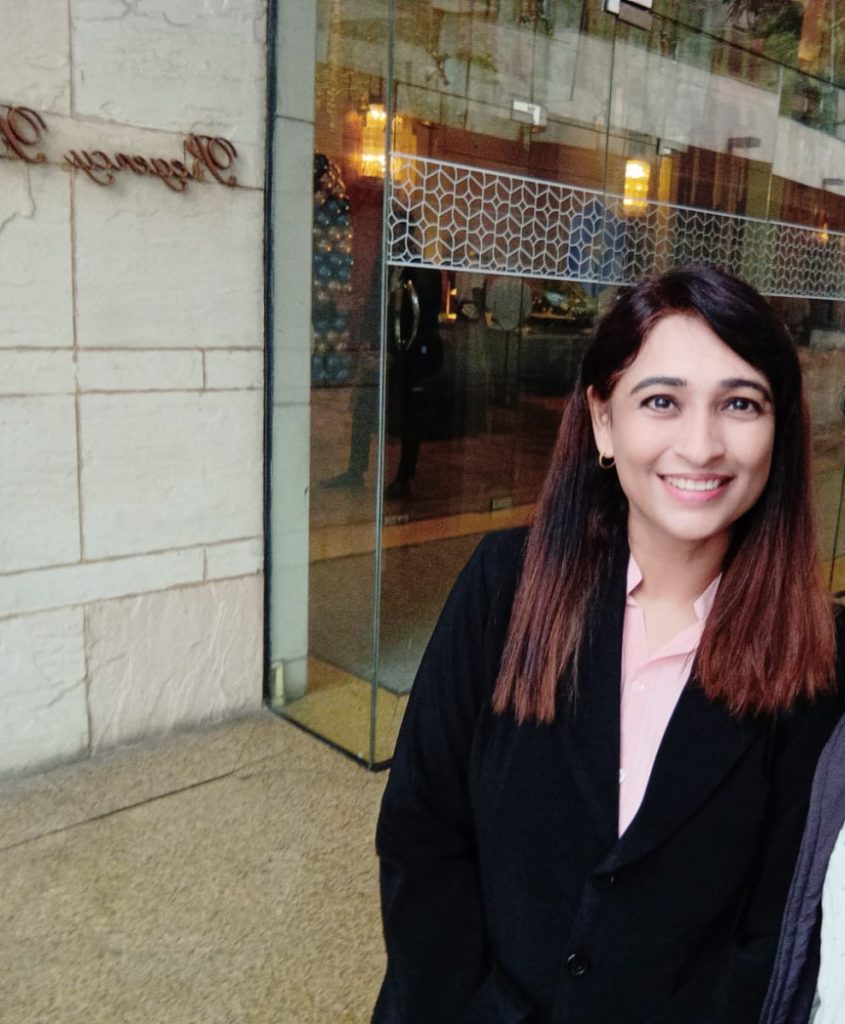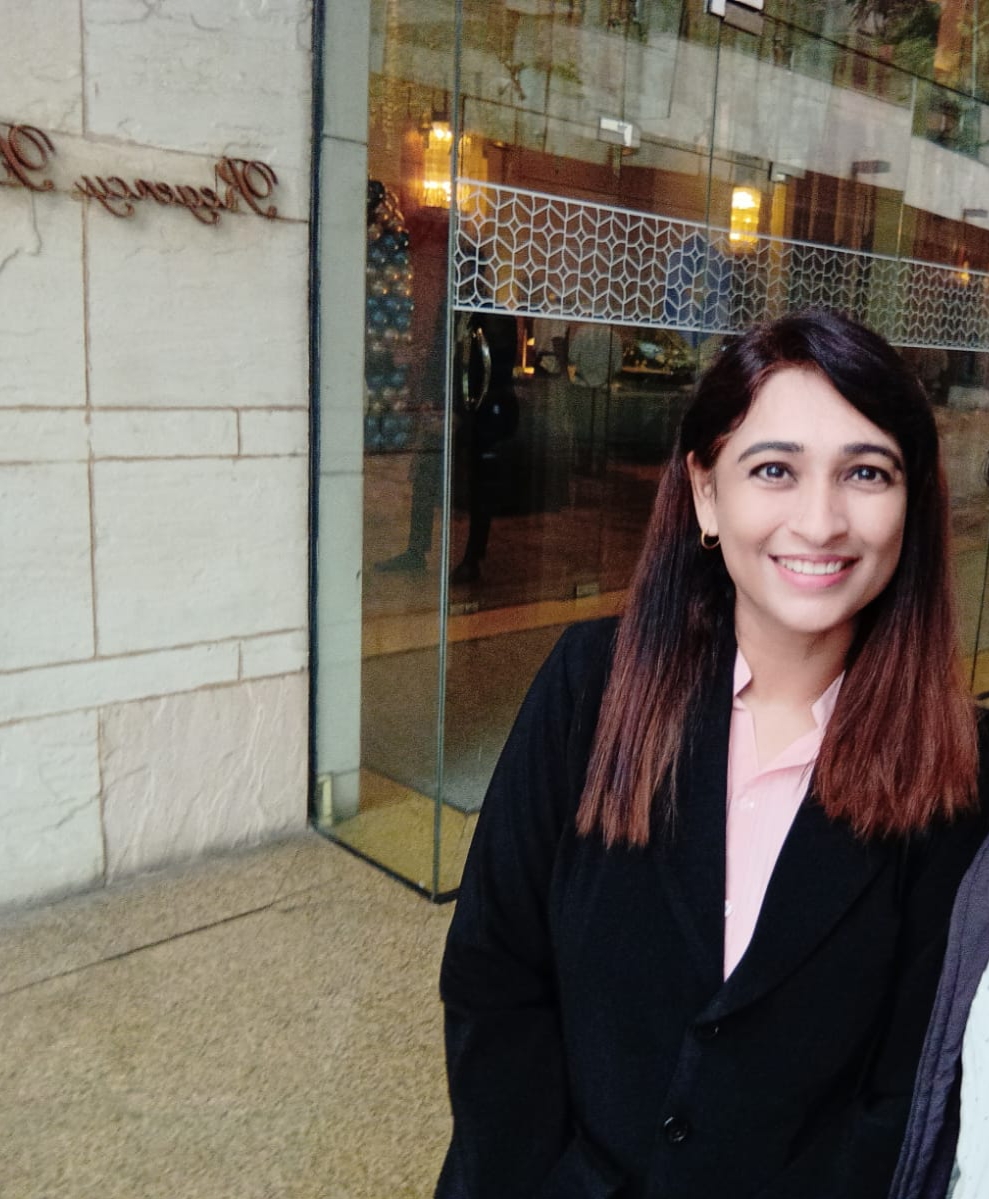This interview has been published by Namrata Singh and The SuperLawyer Team

More than a decade into your legal career, it must feel like a time lapse to reflect on how it was when you started versus how it is now. How has the experience changed?
There has been a significant shift in the entire concept and perception of legal practice. In India, the legal profession has always been regarded as a noble one, and it has grown rapidly over the past 50 years to become the world’s largest branch of the profession.
When I started, legal practice was not as professionalized as it is today. Now, it is managed like a business, with considerable emphasis on marketing one’s profession through online platforms.
We relied heavily on books, working tirelessly to gain legal knowledge and searching for judgments. Hours were spent just browsing through voluminous texts. However, with the advent of the Internet, there is now greater access to information related to legal practice. All information is just a fingertip away. Nowadays, young professionals have everything at their disposal—from information to apex court judgments and even guidance on how to draft an application. Everything is handed to them on a platter, ready to be served and consumed. Additionally, there has been a growing preference among young graduates to join law firms, which was not a common choice earlier.
Litigation is often very stressful, and managing both professional and personal life must be challenging. Could you please share some tips on balancing both for success?
Litigation is a very time-consuming venture. It demands a significant investment of our time, involving intensive study, research, and hours spent going through documents and drafting applications. Presence of mind is crucial while drafting or making a submission before the court, as even a minor mistake can cause significant harm to our clients. Legal practice is serious business and should not be taken lightly, which leaves us with very little personal time. However, it’s essential to recognize that our mental and physical well-being is equally important. Success in our professional lives is intertwined with our personal lives. A healthy mind and body are vital for a successful career, so we must take adequate care of ourselves. Sufficient sleep and healthy eating habits are essential as well.
Having practiced at both the trial court and high court levels, what differences in work culture have you observed?
The High Court is the highest judiciary in the state. It is the apex court, and all other courts are subordinate to it. The High courts are Courts of Record, and their decisions can be used by subordinate courts as references when delivering judgments. The High Court decisions are binding on all lower courts within the state over which it has jurisdiction.
A trial court, on the other hand, is a court of original jurisdiction where trials take place. Appeals from the decisions of trial courts are usually heard by higher courts with the power of appellate review.
Unfortunately, there has been a noticeable decline in the work culture at all levels of the judiciary in recent years. There are prolonged delays in court proceedings, despite the constitutional guarantee of an expeditious trial under Article 21 of the Constitution of India, which aims to provide relief as quickly as possible to aggrieved persons.
You’ve recently been involved with some environmental concerns. How do you take climate responsibility at the individual level, if you could highlight your efforts?
We are all aware of global warming—a gradual increase in the Earth’s temperature, primarily due to increased levels of carbon dioxide, CFCs, and other pollutants. Various factors contribute to global warming, including deforestation, excessive use of vehicles, air conditioners, refrigerators, and industrialization.
Deforestation is a significant cause of global warming, and the resulting imbalance in the ecosystem leads to droughts and floods.
At present, I am dealing with issues related to rampant, unscientific, and life-threatening illegal mining and stone quarrying activities in certain parts of the Birbhum district in West Bengal. These operations involve activities such as drilling, blasting with heavy explosives, excavation, loading, transporting, crushing, and size separation, all conducted without adequate safety measures. Crushers are being operated without any licenses or permits from the appropriate authorities. The hills have been reduced to half their height. The entire atmosphere is covered in dust, endangering the health and lives of the local population, and threatening to disrupt the ecosystem in the future. Although the Honorable National Green Tribunal, Eastern Zone Bench, Kolkata, has passed an order to immediately halt these illegal operations, the mining and quarrying activities continue in utter disregard of the court’s order. This is a matter of great concern for me.
Recently, the entire criminal justice system received an overhaul with the new criminal codes. We would love to hear your take on this.
Yes, the Indian Parliament recently passed three new criminal laws: The Bharatiya Nyaya Sanhita (BNS), The Bharatiya Nagarik Suraksha Sanhita (BNSS), and The Bharatiya Sakshya Adhiniyam (BSA).
These new laws came into effect on July 1st, 2024, and are set to replace the existing Indian Penal Code (IPC), The Criminal Procedure Code (CrPC), and the Indian Evidence Act, respectively.
The Bharatiya Nyaya Sanhita (BNS) replaces the Indian Penal Code. It introduces several new offenses, such as Clause 69, which penalizes sexual intercourse conducted under deceitful means, such as false promises of promotion or employment, marrying after concealing one’s identity, or through other forms of inducement.
Another significant change is the recognition of murder on grounds of caste, community, or race as a distinct offense, as per Clause 103 of the BNS. There are also provisions related to terrorism and organized crime, as mentioned in Clause 111(1) of the BNS. Additionally, Clause 304(1) of the BNS introduces and defines a new term: “Snatching.”
Similarly, The Bharatiya Nagarik Suraksha Sanhita replaces the Code of Criminal Procedure of 1973. It mandates forensic investigation for offenses punishable by imprisonment of seven years or more and allows the production of electronic communications as evidence during investigations, trials, or inquiries.
The Bharatiya Sakshya Adhiniyam (BSA) permits the introduction of electronic and digital records. To provide better protection and transparency in the investigation of rape cases, the law allows for oral evidence to be taken electronically and recorded via audio-video.
We often overlook client management. How important is it in individual practice, and how can one learn this skill?
The legal profession is a noble one, introduced to assist those aggrieved by serious issues such as threats to their safety or dispossession of their properties. We must always take our clients’ problems seriously and strive to achieve justice for them through appropriate legal proceedings, arbitration, and other means.
You have been involved in both litigation and arbitration. How do you perceive the recent trend towards strengthening ADR (Alternative Dispute Resolution) in the country?
The legal framework for resolving disputes through Alternative Dispute Resolution is provided under Section 89 of the Civil Procedure Code, 1908. This section recognizes arbitration, conciliation, mediation, and judicial settlement, including settlement through Lok Adalat.
For me, providing legal relief to my clients as expeditiously as possible is of utmost importance. The overall delay in legal proceedings can frustrate the timely delivery of justice. Resolving issues through mediation, arbitration, and judicial settlement is less time-consuming and offers an alternative channel of relief.
How do you stay connected with your interns and students? Any tips for youngsters in this profession?
My interns and students are like my own children. I feel a deep responsibility toward them and connect with them on a personal level. I remember my first days in court—the newness, the lack of practical experience, the uncertainties. It was all so alien to me. These memories help me understand the confusion and challenges my interns and students may face. I strive to be understanding and compassionate, going out of my way to make them feel at ease and impart whatever knowledge I have gained over the years.
My advice to youngsters is to remain positive, patient, hardworking, and dedicated to their profession. They should also uphold strong principles in both their professional and personal lives.
Can you share a motivational book or film, or a philosophy that keeps you going?
I believe that my life is a book in itself, filled with experiences—the ups and downs I’ve faced, a deeper understanding of human nature, and the maturity I’ve gained over the years. Observing people and their behavior, especially how their approaches change with circumstances, has provided me with valuable insights. I am writing about my experiences and the lessons I’ve learned during my journey in the legal profession over the past decade.
It may sound a bit introspective, but when I reflect on the incredible experiences I’ve had—from my childhood to becoming the person I am today, a woman with maturity and integrity—I can humbly say that I am my inspiration.
The legal domain is undergoing transformative changes, and lawyers need regular upskilling. How do you keep yourself updated with this tide of change?
The legal profession in India has evolved significantly over the centuries. Since independence, the Advocates Act of 1961 has brought about substantial reforms, contributing to the effective administration of justice in society. The profession has become more globalized, with numerous amendments to the laws of our country. Therefore we as lawyers, must stay actively updated with these changes through both offline and online studies of the latest laws and judgments.
Get in touch with Nasreen Islam-


























